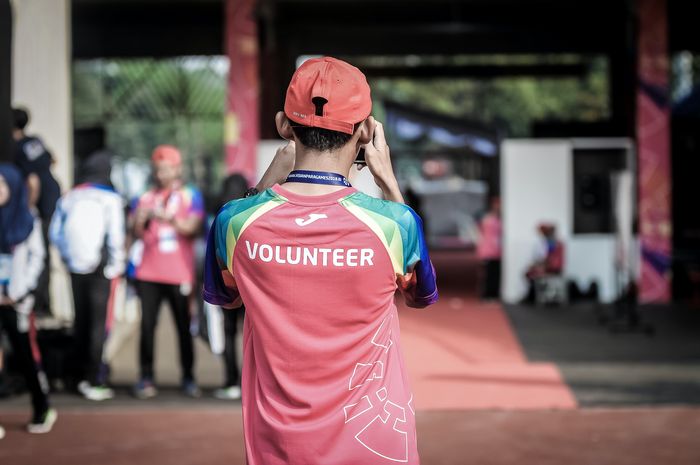Visits to local projects are popular among travelers in the Global South. Whether in schools, community centers or while watching dance groups - more and more children become a tourist attraction themselves, with drastic consequences: Exploitation, long working hours, no more time for school and even children taken away from their parents and housed in alleged orphanages. But tourism can do better: The following examples show how the children can be safe during project visits with consistent guidelines.
The Kliptown Youth Program: Insights into the reality of life in the township
Thulani Madondo has been a tour guide through the slums of Soweto. With the Kliptown Youth Program (KYP) he and his team currently support 902 children and young people from the impoverished township with educational training, tutoring and access to learning materials. The successful project is also open to tourists who want to learn how life is in a township like Soweto. Tour operator Studiosus Reisen supports KYP since many years and visits the project during its South Africa tours. In order to keep up the safe space for all participating children in the project, KYP has enforced strict rules and guidelines. For example, at no time tourists will have direct contact with a child during the visit. “There will always be someone from the community or our project staff who has an eye on the visit and tells tourists about the dos and don’ts. They will also immediately intervene if people cross the line without being aware. In most cases there is no bad intention at all, the visitors are just overwhelmed by the culture they see”, says Madondo. This is also one of the reasons why he wants to keep tourist visits to the Kliptown Youth Program going together with responsible tour operators. “We accept tourists to visit our project to educate them about the culture in our communities and make them understand how people survive on the ground. But we also make sure the intention of the visit is clear. We are not begging or showcasing our poverty to get money. On the opposite – we are proud of what we achieved and how hard we work to get an opportunity out of poverty.”
Kabani Community Tourism & Services: Child protection is a community matter
Sreejith Payydakath also takes pride in his community The managing director of Kabani Community Tourism & Services offers travelers authentic stays in homestays or community-managed vacation rentals in Kerala, India. Community-based tourism is beneficial for the communities, that gain an additional income from tourism. However, these forms of tourism also provides opportunities for sex offenders to get close to children and their families and gain their trust. That's why it's especially important for Payydakath to raise awareness among all residents of the villages. Not easy, as violence and sexual exploitation of children is still a big taboo. Kabani Community Tourism & Services was therefore the first community-based tourism initiative to sign the child protection code: "Tourism has really contributed a lot to the economic development of Kerala over the last 30 years. But there are downsides as well. One is the impact of tourism on our children. We carried out a study and found that 25 percent of the children in our region are exploited in one way or another. That was reason enough for us to counter the current tourism model - with a community-based approach and a commitment to greater child protection by signing The Code," says Sreejith Payyadakath. After signing, not only all members of the organization but also the entire tourism value chain was sensitized to the issue of children's rights. This means not only providers of homestays themselves, but also service staff in restaurants, taxi drivers and the entire community where tourism activities take place. Kabani's commitment pays off - and not only for local children but also for the business itself: "From the very beginning our partners, especially in Europe, have very much welcomed our commitment and the signing of The Code. The systematic approach gives them the assurance that child protection is anchored in our company along the entire tourism value chain.”
DER Touristik: Holistic approach to respect child´s rights
Not only local providers, but also major tour operators are responsible to put the protection of children on top of their agendas. DER Touristik shows how this looks like. By the end of 2022, a comprehensive child protection guideline is to augment its long-standing commitment to combating the sexual exploitation of children in tourism. With the new guideline, the tourism giant intends to review its entire product range with regard to child protection risks. "It is a mammoth task to scan the entire portfolio for such a huge company like DER Touristik with business partners in over 170 countries. So far, we have checked random samples of our value chain and already drawn first conclusions for our product range," says Christian Byczek from DER Touristik Group. For example, there will be no more school and orphanage visits in the portfolios of DER partners in the future in addition to the already existing "zero tolerance clause" for partners in the prevention of sexual exploitation of children in tourism. "We were surprised to see that a fifth of the companies surveyed still offer school visits as part of their tours. Even though these products make up a vanishingly small share, it shows that there is still a long way to go when it comes to awareness raising about children's rights." For other products, such as visits to social projects and homestays, the risks are to be minimized: "We want to create a low-threshold training offer for providers and tour guides. Those will contain initial information and concrete requirements about children’s rights quite simply via a short online training course - for example via smartphone. This also includes a quiz about safety rules. For example, that homestay guests must have their own room, that a four-eyes principle is implemented when meeting children, or that guest gifts should not be given directly to children but to their parents." However, DER Touristik does not want to categorically rule out project visits. "Well managed, such offers can make a valuable contribution to the communities involved."



